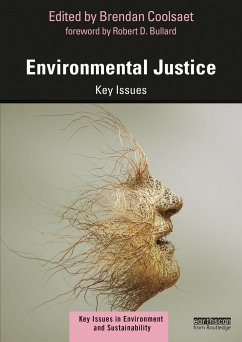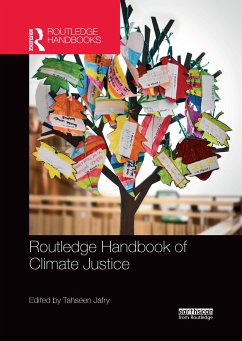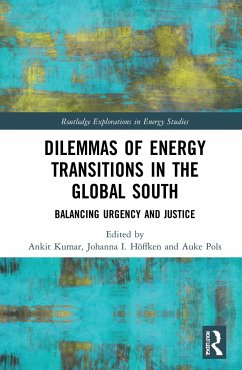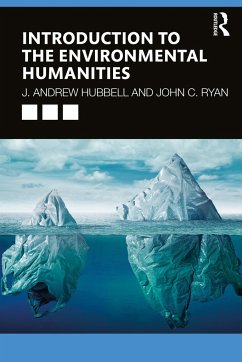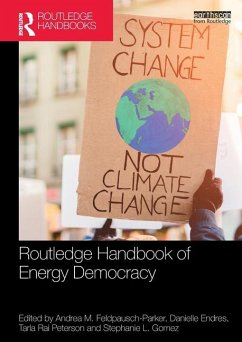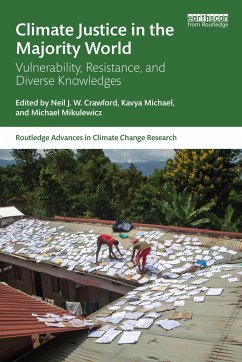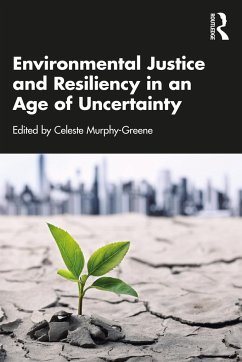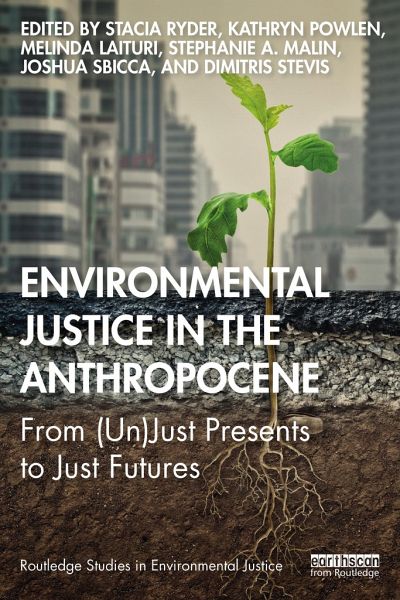
Environmental Justice in the Anthropocene
From (Un)Just Presents to Just Futures
Herausgegeben: Ryder, Stacia; Powlen, Kathryn; Laituri, Melinda; Malin, Stephanie A.; Sbicca, Joshua; Stevis, Dimitris
Versandkostenfrei!
Versandfertig in 6-10 Tagen
41,99 €
inkl. MwSt.

PAYBACK Punkte
21 °P sammeln!
Through various international case studies presented by both practitioners and scholars, Environmental Justice in the Anthropocene explores how an environmental justice approach is necessary for reflections on inequality in the Anthropocene and for forging societal transitions toward a more just and sustainable future.Environmental justice is a central component of sustainability politics during the Anthropocene - the current geological age in which human activity is the dominant influence on climate and the environment. Every aspect of sustainability politics requires a close analysis of equi...
Through various international case studies presented by both practitioners and scholars, Environmental Justice in the Anthropocene explores how an environmental justice approach is necessary for reflections on inequality in the Anthropocene and for forging societal transitions toward a more just and sustainable future.
Environmental justice is a central component of sustainability politics during the Anthropocene - the current geological age in which human activity is the dominant influence on climate and the environment. Every aspect of sustainability politics requires a close analysis of equity implications, including problematizing the notion that humans as a collective are equally responsible for ushering in this new epoch. Environmental justice provides us with the tools to critically investigate the drivers and characteristics of this era and the debates over the inequitable outcomes of the Anthropocene for historically marginalized peoples. The contributors to this volume focus on a critical approach to power and issues of environmental injustice across time, space, and context, drawing from twelve national contexts: Austria, Bangladesh, Chile, China, India, Nicaragua, Hungary, Mexico, Brazil, Sweden, Tanzania, and the United States. Beyond highlighting injustices, the volume highlights forward-facing efforts at building just transitions, with a goal of identifying practical steps to connect theory and movement and envision an environmentally and ecologically just future.
This interdisciplinary work will be of great interest to students, scholars, and practitioners focused on conservation, environmental politics and governance, environmental and earth sciences, environmental sociology, environment and planning, environmental justice, and global sustainability and governance. It will also be of interest to social and environmental justice advocates and activists.
Environmental justice is a central component of sustainability politics during the Anthropocene - the current geological age in which human activity is the dominant influence on climate and the environment. Every aspect of sustainability politics requires a close analysis of equity implications, including problematizing the notion that humans as a collective are equally responsible for ushering in this new epoch. Environmental justice provides us with the tools to critically investigate the drivers and characteristics of this era and the debates over the inequitable outcomes of the Anthropocene for historically marginalized peoples. The contributors to this volume focus on a critical approach to power and issues of environmental injustice across time, space, and context, drawing from twelve national contexts: Austria, Bangladesh, Chile, China, India, Nicaragua, Hungary, Mexico, Brazil, Sweden, Tanzania, and the United States. Beyond highlighting injustices, the volume highlights forward-facing efforts at building just transitions, with a goal of identifying practical steps to connect theory and movement and envision an environmentally and ecologically just future.
This interdisciplinary work will be of great interest to students, scholars, and practitioners focused on conservation, environmental politics and governance, environmental and earth sciences, environmental sociology, environment and planning, environmental justice, and global sustainability and governance. It will also be of interest to social and environmental justice advocates and activists.





